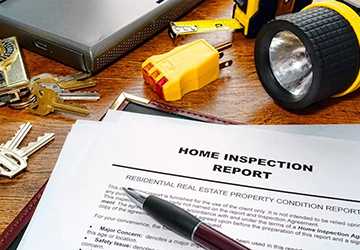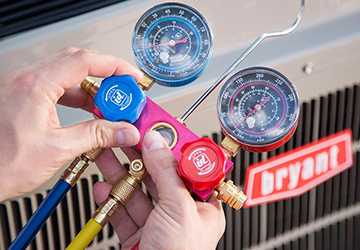A thorough inspection is your best friend when buying or renting a property. Think of it like giving the house or apartment a once-over before you commit. It's all about knowing what you're getting into and catching potential issues early on. So, how do you go about it? Let's dive into the top tips to help you conduct a comprehensive property inspection.

Starting a property inspection without a checklist is like embarking on a shopping trip without a list. You're bound to overlook essential items and details. A well-prepared checklist acts as your roadmap, ensuring you cover all the crucial areas of the property. As you approach the property, this list should be your guiding light, directing your attention to specific elements that require scrutiny.
It should encompass a wide range of areas, from the condition of the exterior walls and paintwork to the functionality of the plumbing and electrical systems. Additionally, your checklist should prompt you to examine less obvious areas, such as the attic and basement, if they are present. By adhering to a structured checklist, you not only mitigate the risk of overlooking critical aspects but also streamline the inspection process, making it more organized and efficient.
It's easy to get carried away with the excitement of potentially finding your dream home or the perfect rental. But remember, this isn't a race. Take your time to inspect each area thoroughly. If you rush, you might overlook something important.
Start from the outside and work your way in. Look for cracks in the walls, signs of dampness, or any other visible damage. Check the roof for missing tiles or signs of wear and tear. Inside, test light switches, faucets, and appliances. Remember to check behind appliances and under sinks for leaks or other damage.
When you're inspecting a property, it's also a good idea to take photos. This way, you'll have a record of everything you've seen, which can be helpful when comparing different properties or negotiating the price.
Be bold and ask questions. Whether you're interacting with a real estate agent, landlord, or current homeowner, they should be able to furnish you with all the necessary information. Ask about the age of the property, any recent repairs or renovations, and if there have been any issues in the past.
It's also a good idea to inquire about the neighbourhood. Are there any upcoming developments that might affect the property's value? What are the local schools like? What's the crime rate in the area? You'll be better positioned to make a wise decision based on your excellent knowledge.
While you can do much of the inspection, sometimes it's worth bringing in a professional. A qualified home inspector will have the expertise to spot potential issues you might miss. They'll also be able to provide you with a detailed report outlining any findings.
If you hire a professional, ensure they are certified and experienced. Pick a dependable candidate by requesting references and looking up reviews online. While it might be an additional expense, it's a small price for peace of mind.
One of the most critical aspects of a property inspection is assessing its structural integrity; this means checking the foundation, walls, ceilings, and overall building construction. Look for cracks, bulges, or unevenness in the walls and floors. Pay special attention to the foundation, as any issues here can be costly.
A comfortable home is a well-heated and well-cooled one. Therefore, testing the heating, ventilation, and air conditioning (HVAC) systems during your inspection is crucial. Please turn on the heating in the colder months and the air conditioning in the warmer months to ensure they work efficiently.

Listen for any unusual noises from the HVAC system, which could indicate a potential problem. Check the filters and vents to ensure they're clean and debris-free. If the system is old or appears in poor condition, consider the cost of repairs or replacement when considering the property's value.
Another area that requires careful inspection is a property's plumbing system. Check for leaks or drips in the sinks, toilets, and showers. Test the water pressure throughout the home to ensure it is sufficient. Check the pipes for damage or corrosion, particularly in older homes.
It's also a good idea to check the water heater for leaks or corrosion. If a septic system is on the property, have a professional check it to ensure it functions correctly. Since fixing plumbing problems may be expensive, finding any possible concerns early on is critical.
Last, remember to evaluate the outdoor space surrounding the property. Check the lawn condition, landscaping, and outdoor structures, such as decks or patios. Look for signs of erosion or drainage issues affecting the property's foundation.
Inspect the condition of the driveway and walkways, noting any cracks or damage that may need repair. Assess the condition of the pool on the property and verify the proper functioning of safety features, including fencing and alarms.
It is crucial to perform a comprehensive property inspection when purchasing or leasing a property. By following these top tips, you'll be well on your way to ensuring you make a sound investment. Remember to start with a checklist, take your time, ask questions, and consider hiring a professional if needed. Happy inspecting!